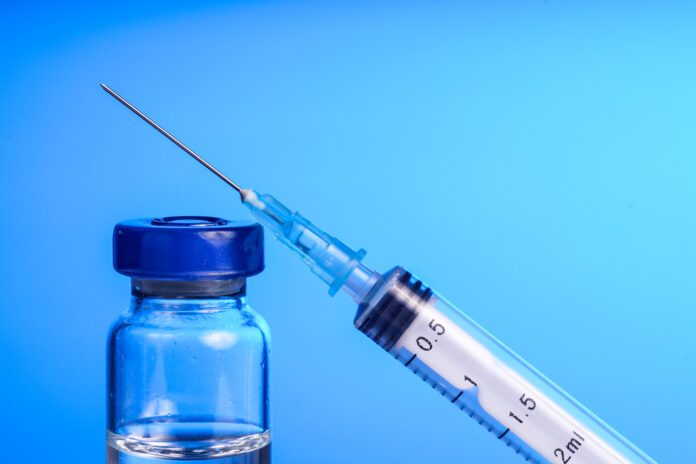As the world keeps advancing, new diseases are also being discovered. Thankfully, with the emergence of science and technology to parallel such discovery, we can now comfortably sleep with our eyes closed because we know that most of these are vaccine-preventable diseases.
The current rate at which diseases can be prevented goes a long way in keeping a community and nation safe. However, despite all this, people still die in the millions from diseases. Let’s quickly look at how many people die, and how we can help.
What Are Vaccine-Preventable Diseases?
A good and integral part of community development is vaccination against a wide range of bacterial and viral diseases. Proper and early vaccination against all diseases a lot of times lead to complete eradication of the diseases. Some of these vaccinations can be administered at a very young age and conclude in adulthood. Examples of vaccine-preventable diseases include:
- Tetanus
- Diphtheria
- Pertussis (whooping cough)
- Measles
- Poliomyelitis
- Mumps
- Rubella
- Hepatitis B
- Influenza
- Pneumococcal infections
- Haemophilus influenza type B infections
Other diseases with a high risk:
- Cholera
- Rabies
- Hepatitis A
- Meningococcal disease
- Plague
- Yellow fever
- Tuberculosis
- Typhoid
How Many People Die From Vaccine-Preventable Diseases Each Year?
Despite the increasing immunizations offered by vaccines, many people still die of vaccine preventable diseases each year – in fact this number is over 1.5 million.
Why Are So Many People Still Dying From Vaccine-Preventable Diseases?
Despite all attempts to keep people safe from some diseases through vaccinations, some people still exempt themselves from vaccinations. The reason why so many people still die from these vaccine preventable diseases is that they intentionally refuse to take these vaccines. A lot of these people have their reasons rooted in religious beliefs.
How Can We help Prevent Vaccine-Related Deaths?
- Firstly we need to properly educate people on why they should get vaccinated. Here are some reasons:
- The viruses and bacteria that cause these vaccine preventable diseases are still in existence. The implication is that people who are not properly vaccinated are at a big risk of contracting it
- Vaccines help us to stay healthy. When you leave yourself not vaccinated, you are making yourself vulnerable to contracting diseases. For this reason, the Centers For Disease Control And Prevention (CDC) recommends that we get vaccinated throughout our lifetime to protect us from many diseases and infections out there
- One of the best ways to keep yourself safe and healthy is through vaccines. The role of the vaccine in our health can be equated to that of food and exercise in our lives
- You need to get vaccinated in order to remove yourself from the list of people who are at the risk of dying yearly from these vaccine preventable diseases
- Vaccines have been proven to be safe to a great extent. It should be noted that vaccines are among the safest products of medicine
- Vaccines won’t infect you with the diseases they are made to prevent. This is because some vaccines contain killed virus, so it is impossible to get the disease from them
- Whether you are young or healthy, anyone can get sick. Although children and old people are more susceptible to getting sick, vaccine-preventable diseases can strike anyone. So getting vaccinated helps you keep the infections away regardless of your baseline health
- Vaccine-preventable diseases are very expensive to treat
- Vaccine-preventable diseases take a lot of time to treat
- When you get vaccinated, you are not doing it just for yourself. You are also doing it for your friends and family. This is because some of these diseases are communicable. When you contract them you are putting your family at risk
- Most of the people who don’t receive these vaccines do so because they don’t have the opportunity or accessibility. In most rural areas in a lot of countries, these vaccines don’t make their way to everyone. This could be because there is a lack of manpower or resources to administer these vaccines to everyone far and near.
Health professionals need to find ways to get vaccines to these poorer communities. With poverty and lacking basic necessities of life it’s difficult for them to get vaccinated against the disease. The best way we can do this is to involve micro-planning and make plans on how to make these vaccinations suit the needs of different environments and communities. It’s also important to look into distribution and logistics. Even if there is a crisis in those communities, administering vaccines should be a priority.
- As healthcare professionals, we should try to encourage community leaders to take part in the vaccination process. Accountability is important, as it will ensure more vaccines are getting to those who really need it.
Conclusion
We should all join hands together to keep spreading the message and keep informing people on the importance of getting vaccinated. As it can prevent the morbidity and mortality associated to these these vaccine preventable diseases.








